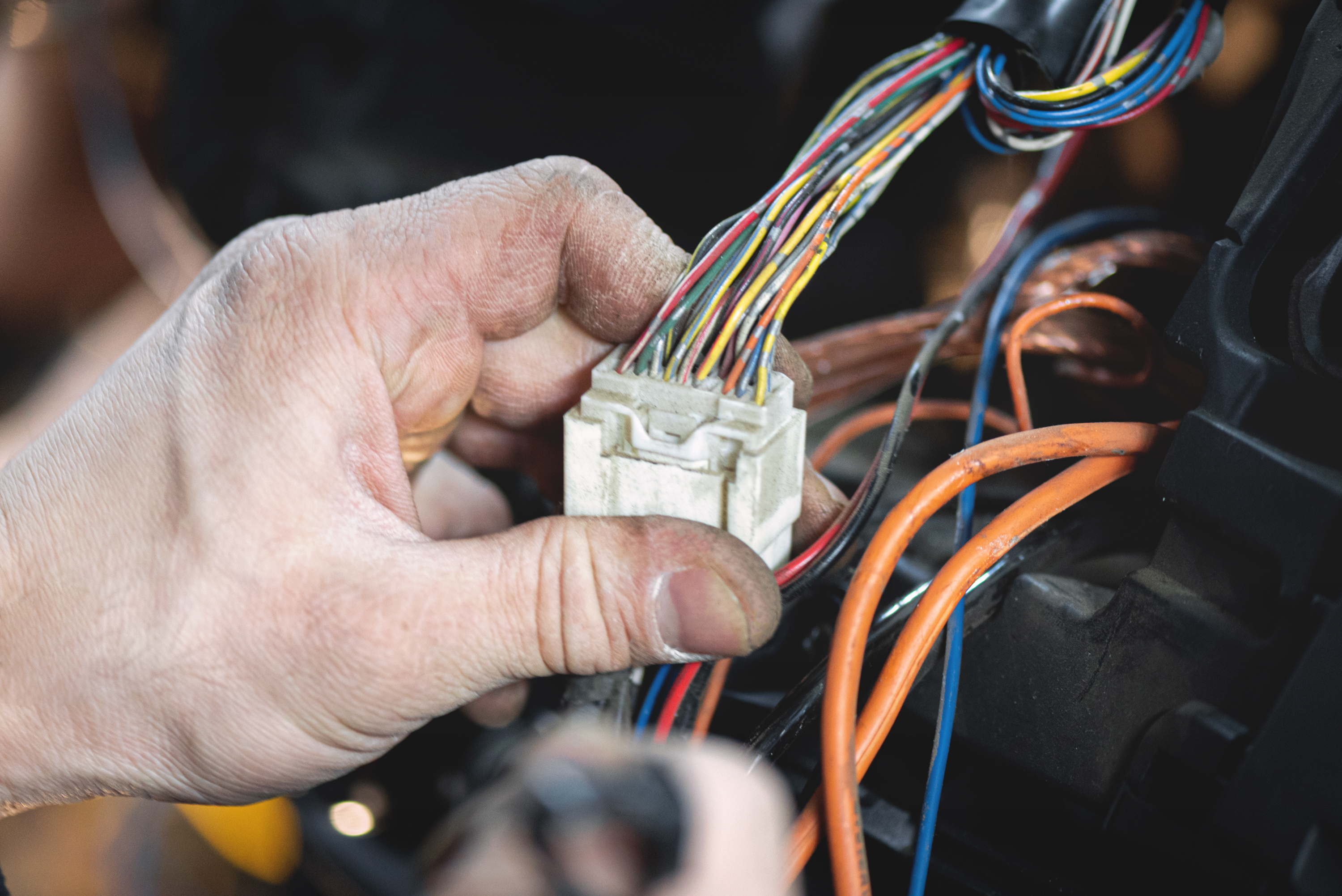Avoid These Common Auto Electrical System Problems

Your car's electrical system is like its nervous system. It controls and powers important components like the engine, lights, and radio. And just like any other part of your car, this system can experience problems occasionally.
If any part of your electrical system stops working, it could initiate a chain reaction and eventually cause a total electrical system failure. In this guide, your friends at Christian Brothers Automotive will highlight what your electrical system does, common problems to avoid, and maintenance tips to keep everything in check!
Understanding Your Car's Electrical System
Your car's electrical system comprises three crucial components: the battery, alternator, and starter, all of which work together to power your car.
The battery stores electricity when the car is off, supplying the power needed to start the engine. Once the engine runs, the alternator generates electricity to power the vehicle's electronic systems. The starter plays its role by turning the engine over when you ignite the key.
Automotive parts that use electronic command systems include:
- Airbag
- Door locks, lights, and electric windows
- Transmission
- Brakes
- Seats
- Drivetrain
- Engine
As you test your home computer to ensure it runs at optimal speed, your vehicle also needs regular assessments. An electrical system check-up ensures all vehicle components function as intended, working harmoniously together.
Common Automotive Electrical System Problems
Identifying potential problems in your car's electrical system will help you maintain your vehicle's reliability and enhance your safety on the road. Here are some common automotive electrical system problems you might encounter:
Dead Battery
A battery dies when it can no longer hold the charge or when a faulty component exists within the vehicle. Your battery can also die due to headlights or a stereo left on too long. You can jump-start your battery with jumper cables, but let your certified technician take a look. They’ll be able to help you recharge or replace your battery.
Alternator
Your alternator charges your battery while your automobile is running. When the alternator breaks, your battery’s power drains quickly, and all power is lost to your car. Bringing your car into your auto repair shop can help get you back on the road. Let your technician determine the problem and, if needed, replace your damaged or broken alternator.
Spark Plugs
If you notice that your car is accelerating poorly, running on idle poorly, or getting bad gas mileage, you might have a problem with your spark plugs or spark plug wires. Your engine can't work properly when these important parts are damaged or broken. Your technician can remedy the issue with a basic tune-up.
Starter Motor Issues
When you turn your key in the ignition and hear a clicking sound instead of your engine turning over, you might have a problem with your starter motor. The starter motor is responsible for initiating engine operation, and when it fails, your car won't start even if the battery is fully charged. Common signs of starter problems include grinding noises during starting, slow cranking, or complete failure to turn over. This can often be fixed by replacing the starter motor.
Faulty Fuses
Like your home's electrical system, your car's electrical components are protected by fuses. When a fuse blows, it interrupts power to specific systems in your vehicle. This could affect anything from your radio to your power windows. Regular inspection of fuses, especially if you notice flickering lights or intermittent electrical failures, can help prevent more serious electrical issues from developing.
Faulty Electrical Connections
Your car contains hundreds of electrical connections, wires, and terminals that work together to power various systems. Over time, these connections can become loose, corroded, or damaged due to vibration, moisture, or general wear and tear. Common signs include flickering lights, intermittent power loss to components, or systems that work sporadically. If you notice any signs of corrosion, frayed wires, or loose connections, it's best to have a certified technician inspect your vehicle's electrical system.
Electrical System Maintenance Tips
Regular maintenance of your car's electrical system can help prevent many common problems and extend the life of your electrical components. Here are key maintenance practices to follow:
- Keep Your Battery Clean: Check your battery terminals regularly for corrosion and clean them with a wire brush if needed. Ensure battery connections are tight and free from buildup. A clean battery provides better conductivity and longer service life.
- Schedule Regular Inspections: Have your electrical system professionally checked at least once a year or every 12,000 miles. This should include testing the battery's charge level, checking the alternator's output, and inspecting all major electrical connections.
- Watch For Warning Signs: Don't ignore warning lights on your dashboard or symptoms like dimming headlights, slow engine cranking, or flickering displays. Addressing these issues can prevent more expensive repairs later.
Without a properly functioning electrical system, your car won't start, leaving you stranded. Regular maintenance and prompt repairs can help prevent these common electrical problems and ensure your vehicle runs smoothly.
Christian Brothers Automotive Offers Expert Auto Electrical Services
If you're experiencing any electrical problems with your car, bring it to Christian Brothers Automotive. Our expert technicians have the training and experience to diagnose and repair any electrical issue in your vehicle.
We use state-of-the-art equipment and high-quality parts to ensure long-lasting repairs. Don't let an electrical problem leave you stranded on the road. Between our expert services and Nice Difference in customer experience, you can trust us to keep your car running smoothly.
Find your nearby Christian Brothers Automotive auto shop and bring your car in for an electrical system inspection today!


[1].jpg)
[2].jpg)
sunwash-tech-with-customer.png)
